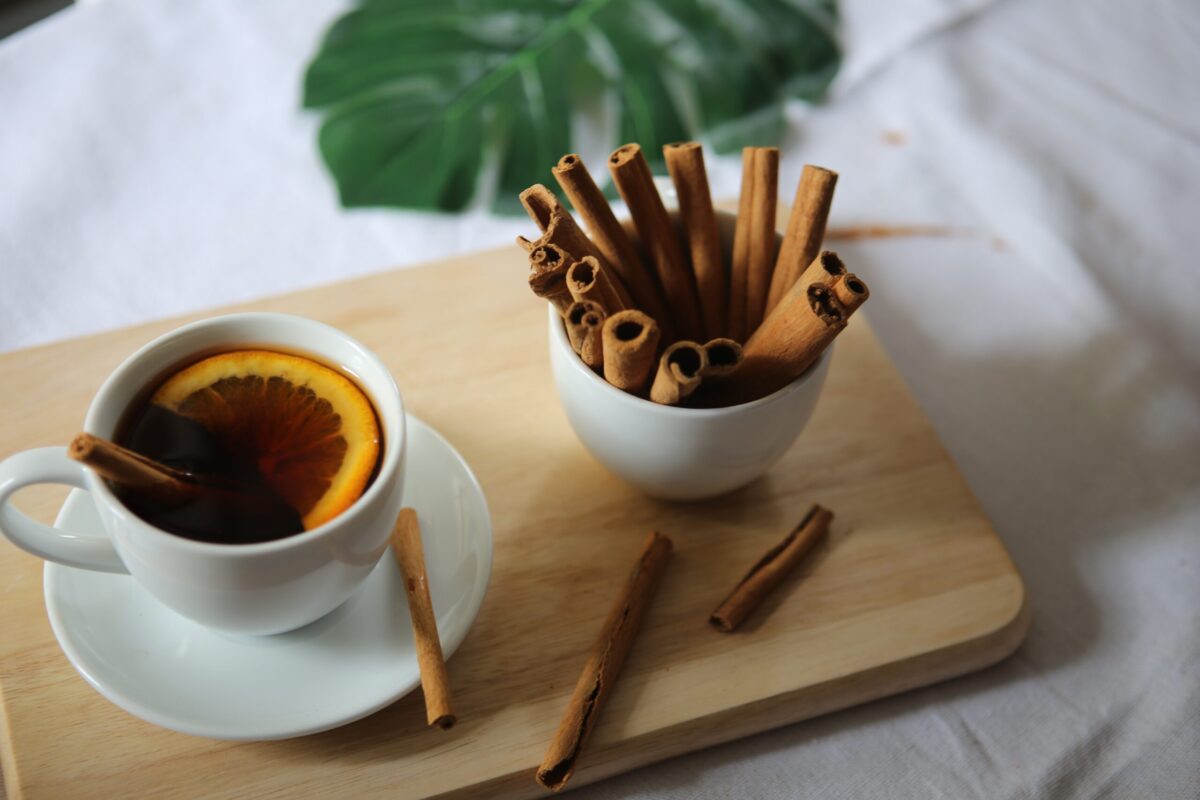NutraBlog
Can Herbal Teas Reduce Inflammation?

Many herbs have anti-inflammatory properties and have been used for hundreds of years to treat pain, inflammation, and other health conditions. Discover which herbal teas reduce inflammation in our guide.
—
Inflammation is part of our body’s natural immune response. It’s designed to protect against infection and is an essential part of the wound-healing process.
Short-term inflammation is known as acute inflammation. Most of the time, acute inflammation is simply the body’s most appropriate response to outside invaders such as bacteria and viruses, or foreign objects like a splinter.
However, sometimes the inflammatory response continues even once the immediate issue has passed. This long-term form of inflammation is called chronic inflammation. Over time, it can start to cause damage to our organs and tissues. Chronic inflammation has been linked to a wide range of health issues, from weight gain and fatigue to serious illnesses like heart disease, Alzheimer’s, type 2 diabetes, rheumatoid arthritis, and cancer.
Chronic inflammation can be a symptom of an autoimmune disease or an untreated case of acute inflammation. But it can also be a response to lifestyle factors, including smoking, drinking alcohol, exposure to toxins, and eating certain foods regularly.
These factors increase the number of free radicals in our bodies. If we don’t have enough antioxidants to neutralise these free radicals, it can result in a condition called oxidative stress. Short-term oxidative stress isn’t necessarily harmful. Sometimes it can even help to prevent infection and build muscle.
However, long-term oxidative stress can lead to chronic inflammation and the health issues associated with it.
Doctors increasingly believe that the best way to reduce or prevent chronic inflammation is through our lifestyles, including our diets. And drinking herbal tea regularly might be part of the solution, especially combined with other healthy choices, such as a good diet, enough sleep, regular exercise, and stress management.
How Do Herbal Teas Reduce Inflammation?
Many herbs have anti-inflammatory properties. They contain powerful antioxidants that can help to neutralise free radicals and protect your cells against damage from oxidative stress. In turn, this reduces your risk of developing chronic inflammation.
Some herbs and spices also disrupt the inflammatory response directly by inhibiting the production of signalling molecules called cytokines, which activate inflammation. Many can help to reduce the pain associated with inflammatory conditions too.
What Are the Best Herbal Teas for Inflammation?
While many herbs and spices can help to reduce inflammation, some are particularly effective. These include:
1. Turmeric
Bright yellow turmeric is a popular ingredient in curries and other Indian dishes. It can also be used in herbal tea blends, where it gives an earthy flavour. Turmeric is well-known for its ability to combat inflammation and ease the pain associated with it.
Turmeric’s main active ingredient is curcumin, a natural anti-inflammatory. It is one of the most studied food-based medicines and there’s plenty of evidence that it is effective in reducing inflammation.
2. Black Pepper
Nose-tingling black pepper is another spice that is great for combatting inflammation. It contains piperine, a compound that disrupts the inflammatory response and can help to relieve the symptoms of chronic diseases.
Another advantage of piperine is that it helps our bodies to absorb the curcumin found in turmeric, so we get the most from both compounds. Black pepper and turmeric are often found together in herbal tea blends that aim to combat inflammation, such as our NutraJoint tea.
3. Green Tea
Green tea is packed with antioxidants, which help to combat oxidative stress and reduce the risk of chronic inflammation. In particular, it contains a catechin called epigallocatechin-3-gallate (EGCG), which gives this tea many of its health benefits.
Green tea also combats inflammation itself by reducing the production of pro-inflammatory molecules. It has shown potential for treating the symptoms of diseases caused by chronic inflammation, including ulcerative colitis and rheumatoid arthritis.
Like black pepper and turmeric, green tea is one of the ingredients in NutraJoint, our tea aimed at reducing inflammation and promoting joint health.
4. Ginger
Ginger is always a favourite in herbal tea blends for its warming and energising flavour. It also contains many different antioxidants. One of these is gingerol, which is an anti-inflammatory compound that is closely related to both curcumin and piperine.
Gingerol and the other antioxidant compounds in ginger help to reduce inflammation by inhibiting the production of inflammatory cytokines. Ginger has also been used to alleviate the symptoms of several chronic diseases, including diabetes and osteoarthritis.
5. Lemongrass
Delicate lemongrass has a light, citrusy flavour and is a popular herb in Thai, Indonesian, and Vietnamese cooking. It is also another anti-inflammatory and antioxidant, helping to reduce oxidative stress and chronic inflammation.
Lemongrass owes its flavour in part to citral, which is also found in the peel of citrus fruits like lemon and orange. This compound fights inflammation by reducing the production of inflammatory cytokines.
Our Lemongrass and Ginger flagship tea combines both these anti-inflammatory plants into one delicious herbal tea.
6. Cinnamon
Another warming spice, cinnamon is a comforting addition to any herbal tea blend. It has been used medicinally for centuries and is a popular natural remedy for joint pain, menstrual cramps, and arthritis.
Cinnamon contains an active compound called cinnamaldehyde, which is a natural anti-inflammatory. We pair cinnamon with turmeric to make one of our favourite flagship blends.
